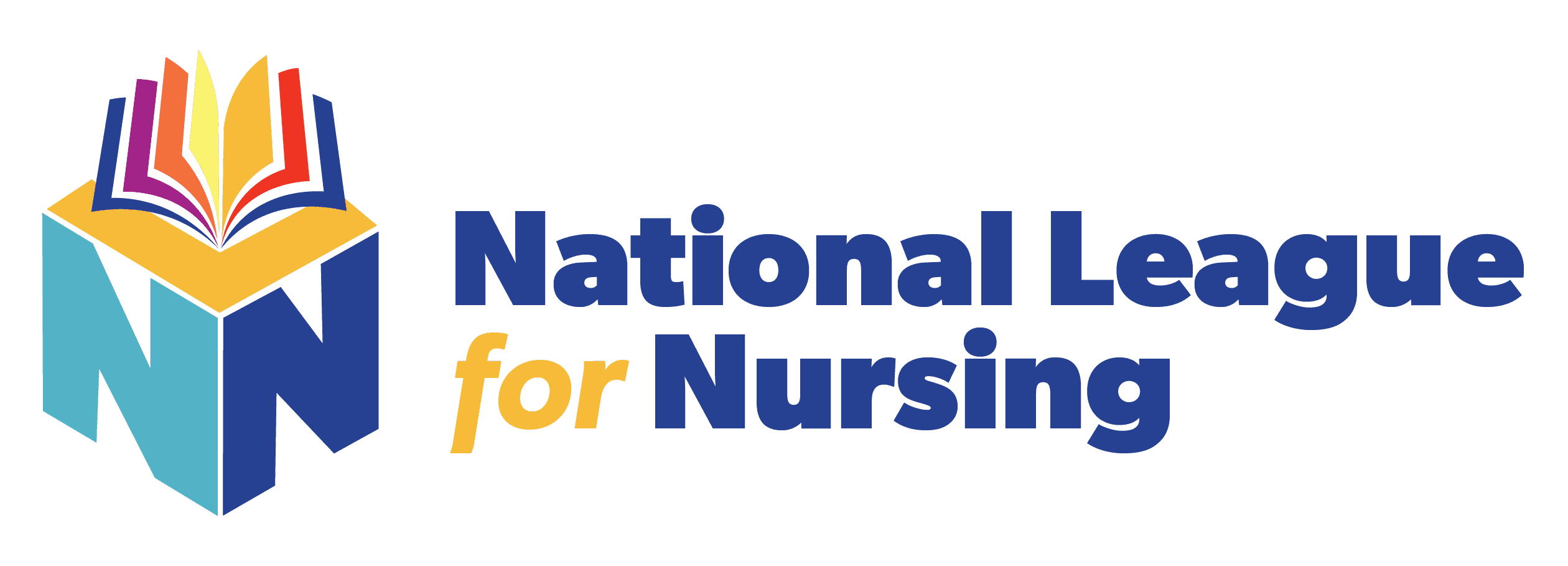NLN Responds to National Task Force on Quality Nurse Practitioner Education 2022 Standards
NLN Responds to National Task Force on Quality Nurse Practitioner Education 2022 Standards
Unsubstantiated Proposed Change Could Place Nursing Programs in Jeopardy
Washington, DC — The National Task Force (NTF) on Quality Nurse Practitioner Education released the 2022 Standards for Quality Nurse Practitioner Education (6th edition). The new criteria reflect an increase in clinical hours for Nurse Practitioner (NP) education programs, from 500 to 750. In 2021, the National League for Nursing (NLN) wrote a response in opposition to the NTF’s draft version. This 2022 response expands on that initial NLN statement. The change in requirements for clinical hours lacks cited, documented evidence regarding "the hourly requirements to achieve competency." Nurse practitioner outcomes have been documented to equal or excel those of physician peers under a nursing educational structure that mandates 500 clinical hours (Carranza, et al, 2020; Stanik-Hutt et al, 2013; Mundinger et al, 2000).
Clinical hours must also be viewed from a systems perspective. Increasing the requirements for clinical hours from 500 to 750 may delay entry into this advanced practice role and increase the need for additional faculty, clinical sites, and preceptors at a time of significant shortages of all those essential elements. Moreover, the new NTF standards may place graduate nursing programs at risk of closing, thereby reducing the number of graduates; move the goal of graduate nursing education out of the reach of many promising nurse practitioners; and limit the potential access of the public to health care services these nurse practitioners might provide. These unintended consequences undermine the goal of increasing access to a diverse population in advanced practice nursing. The new standards occur at a time when health care systems are in crisis, nurses are in great demand, and inequitable access to health care has never been more visible.
The NLN supports innovation in nursing education to better prepare graduates for an ever-changing world. The new NTF Standards state that simulation may support, but not replace, the 750 clinical hours. There is a lack of evidence for this restriction. Simulation may serve as a means of decreasing the immense strain on clinical sites and may also advance innovations in academic-practice partnerships.
The NLN commends the NTF task force for their ongoing efforts and support of competency-based education. In order to establish needed evidence, the NLN proposes the development of rigorous research to support evaluation of competency instead of adding an unwarranted burden on our current health care system and adverse impact on an already overwhelmed workforce. In addition, research must include the following systems factors:
- The workforce projections of demands for nurse practitioners by clinical and role specialties
- The economic impact on prospective students and families, especially those of diverse backgrounds who would reflect the populations they would serve
- Identification of the impact of the additional 250 clinical hours on enrollment, clinical learning access, and long-term effects on program viability, particularly in rural and underserved areas
- The impact on master’s level and liberal arts-based colleges in serving their communities
- The projected impact on care in communities where nurse practitioner graduate programs serve as the primary source of health care providers
As we work to build a diverse nursing workforce to advance the health of our nation and the global community, we must understand the complex, interwoven, and intersecting systems and the totality of ways that policies, patterns, and practices in turn reinforce disparities, lack of access, and the inequitable distribution of resources. This unsubstantiated proposed change to the education and preparation of advanced practice nurses could place nursing programs throughout the nation in jeopardy, weakening the nursing workforce due to a lack of nurse educators, preceptors, and clinical practice sites.
References
Carranza, A. N., Munoz, P.J., Nash, A., J. (2020). Comparing quality of care in medical specialties between nurse practitioners and physicians. Journal of the American Association of Nurse Practitioners, 6(33),184-193.
National League for Nursing. (2021). National League for Nursing response to the criteria for evaluation of nurse practitioner programs (6th ed). https://www.nln.org/docs/default-source/uploadedfiles/about/nln_response_ntf_sept2021-(1).pdf?sfvrsn=7e40653f_3
National Task Force. (2022). Standards for quality nurse practitioner education. A report of the national task force on quality nurse practitioner education. 6th Edition. https://cdn.ymaws.com/www.nonpf.org/resource/resmgr/2022/ntfs_/ntfs_final.pdf
Mundinger, M.O., Kane, R.L., Lenz, E.R., Totten, A.M., Tsai, W.Y., Cleary, P.D., Friedwald, W. T., Siu, A. L., Shelanski, M.L. (2000). Primary care outcomes in patients treated by nurse practitioners or physicians: A randomized trial. JAMA, 283(1), 59–68.
Stanik-Hutt, J., Newhouse, R. P., White, K. M., Johantgen, M., Bass, E. B., Zangaro, G., Wilson, R., Fountain, L., Steinwachs, D.M., Heindel, L.,Weiner, J. P. (2013). The quality and effectiveness of care provided by nurse practitioners. The Journal for Nurse Practitioners, 9(8), 492–500.
The National Task Force Standards FAQ June 16, 2022. https://cdn.ymaws.com/www.nonpf.org/resource/resmgr/2022/ntfs_/20220616_ntfs_faq_.pdf
#####
About the National League for Nursing
Dedicated to excellence in nursing, the National League for Nursing is the premier organization for nurse faculty and leaders in nursing education. The NLN offers professional development, networking opportunities, testing services, nursing research grants, and public policy initiatives to its nearly 45,000 individual and 1,100 institutional members, comprising nursing education programs across the spectrum of higher education and health care organizations. Learn more at NLN.org.
